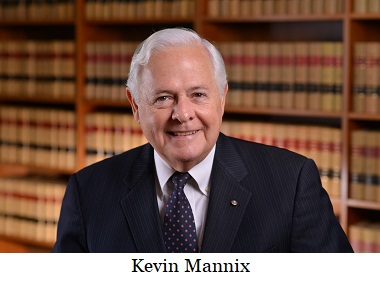Will HB 4002 correct Measure 110?
Oregon
House Bill 4002 could be the most important bill this legislative session. It will determine how serious the legislature is on prioritizing public safety. Both parties introduced bills with somewhat different ideas of what decriminalizing Measure 110 should look like. Every Joint Committee on Addiction and Community Safety committee member expressed some dislike in the amended bill.
The Republican bill,
HB 4036, has not moved since its initial hearing February 7, in preference of HB 4002. HB 4036 was stronger on enforcement, so Democrat leaders amended HB 4002 to include recriminalizing drug possession and open-air drug use, and increasing fines and penalties for drug dealers.
Senator Floyd Prozanski (D-Eugene) had additional concerns that the bill was being accelerated so fast that it isn't being vented as to what it will do to the justice system. Was he implying another "catch and release" in the making? He has concerns about putting the decision of treatment into prosecutor’s hands that may lead to discrimination, which was discussed by several committee members. “It doesn't meet the criminal side of what voters want addressed,” he said. Senator Fred Girod (R-Stayton) is also concerned with the bill being heavy on treatment but light on enforcement.
Representative Kevin Mannix (R-Keizer/North Salem) proposed nine amendments to address what he views as weaknesses in the Democrat's amended bill. He proposed his own amended bill, but seeing that Democrat co-chairs wouldn't consider it, he proposed amendments to their amended bill that would carry out his proposed plan he announced last week.
“While I think that the enforcement mechanism presented by the Democrat majority is
not as strong as it should be, it is a step in the right direction. We need to strengthen
this with additional changes in the law, which is why I have proposed nine amendments
to the package deal under consideration,” said Representative Mannix.
However, because time did not allow for fiscal impact statements to be prepared, it required the committee to wave the rule, and Democrat members refused the opportunity to see if additional amendment would address some of Prozanski's concerns.
The Centers for Disease Control and Prevention (CDC) released new data this month that shows overdoses deaths are rising at a faster rate in Oregon than anywhere else in the country. Between September 2022 and September 2023, Oregon saw a 41.5% increase in overdose deaths. The co-chairs, Senate Majority Leader Kate Lieber (D-Beaverton) and Representative Jason Kropf (D-Bend), released a statement in response to the CDC report:
“Inaction is not an option. This is another sobering reminder of why we have to act this session to keep our communities safe and save lives. We’re working hard to finalize a plan that accomplishes both. It is clear that Oregon's current approach to the drug crisis is not working, and we know the War on Drugs didn’t work either. Our goal is to put politics aside so we can chart a new course to a safer, healthier Oregon together."
A D V E R T I S E M E N T

A D V E R T I S E M E N T
The fiscal impact on HB 4002 is reported to be $21,061,114 with over half ($12,191,071) going to the Public Defense Commission. This, coincidentally, is the same amount that was awarded to enforcement in 2021 to track down illegal drug activity that was a successful "war on drugs" while funding lasted. The DEA joined in with federal funding and a task force was also federally funded for five western states. The work spread into 14 Oregon counties. Lane County reported taking down at least eight slave camps with similar results in other counties.
Funding to continue that program has fallen on deaf ears, and HB 4002 does not include work to take down cartel slave camps and eliminated some illegal growers. On the other hand, HB 4002 funds the defense for the criminals caught under this bill and gives them a treatment option instead of serving time. It allocates $1,609,904 to state police, but that will cover looking after all the probation agreements or crsis intervention options offered in the bill.
Oregonians are scratching their heads in disbelief. What "War on Drugs" has this leadership earnestly pursued? One Oregonian has seen slave labor increasing and says that Democrat's idea of war on drugs has been to organize slave camps and hogtied police during the riots by passing SB 1510. There are over 20 elected Democrat politicians that took unreported money from La Mota, who he says has cartel connections prior to moving to Oregon. We have cartels driving people from over 166 countries over our borders exploiting them and we encourage them with sanctuary state laws, while our citizens live in the streets in tent cities, with no hope but a steady flow of fentanyl and other drugs. He asks, "I truly wonder if elected Democrats care about what's wrong when their answer is to fund $1.2 billion for an industrial homeless complex and give free medical care to the world. Why did Governor Kate Brown shut down two state prisons and then release 1,000 more violent offenders into the streets of Oregon? Kate Brown wanted to shut down the mental hospital in Junction City, Oregon, before it was even opened to receive mentally ill. Now they are looking for treatment centers."
Measure 110 is at the root of almost every problem we now face in Oregon, but will HB 4002 really help?
--Donna Bleiler| Post Date: 2024-02-27 10:45:44 | Last Update: 2024-02-27 22:41:57 |







